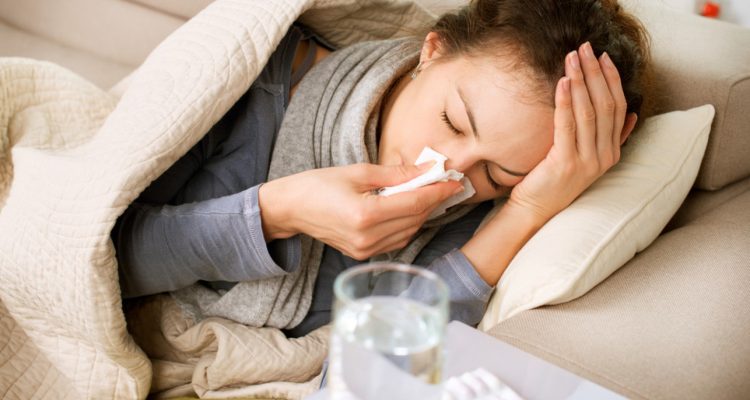Is it Flu or Coronavirus?

Suffering from a sore throat, cough, or just feeling run down? With the recent outbreak of COVID-19, or coronavirus, it may feel difficult to determine if your symptoms are stemming from the flu or from something else. You can monitor your symptoms and protect yourself and others with a few simple guidelines.
Coronavirus vs. Flu Symptoms
Coronavirus
What is it?
COVID-19 presents itself as a mild to severe respiratory illness with fever, cough, and difficulty breathing.
How can I catch it?
Current understanding is that COVID-19 spreads mostly from person to person through respiratory droplets when a person coughs or sneezes. Typically, people within 6 feet of someone with an illness are at highest risk. Additionally, after coughing or sneezing, these droplets may be present on doorknobs, counters, and other surfaces. Frequent cleaning of surfaces and household items can reduce this route of viral spread.
How long does it take to develop symptoms?
COVID-19 usually takes effect 2–14 days after exposure.
Flu
What is it?
The flu is caused by one of several influenza viruses that typically result in fever, chills, cough, sore throat, runny or stuffy nose, muscle or body aches, headaches, and fatigue. The flu may also present vomiting and diarrhea, but it is more frequently seen in children than adults.
How can I catch it?
People with the flu can spread it to others up to about 6 feet away. Most experts think that flu viruses spread mainly by droplets made when people cough, sneeze, or talk. These droplets can be easily inhaled through the nose or mouth of people who are nearby. Similar to COVID-19, these droplets may be present on doorknobs, counters, and other surfaces after a person coughs or sneezes. Frequent cleaning of surfaces and household items can reduce this route of viral spread.
How long does it take to develop symptoms?
The flu virus has an abrupt onset with symptoms beginning about two days after the virus enters the body.
How to protect yourself and others from COVID-19 and the Flu
Get your annual flu vaccine; even late in the flu season, it offers the best protection.
There is no vaccine for COVID-19 at this time.
- Avoid close contact with people who are sick.
- Avoid touching your eyes, nose, and mouth.
- Stay home when you are sick.
- Cover your cough or sneeze into a tissue then throw the tissue into the trash.
- Wash your hands often with soap and water, frequently.
- Clean and disinfect frequently-touched objects in your home and workplace.





